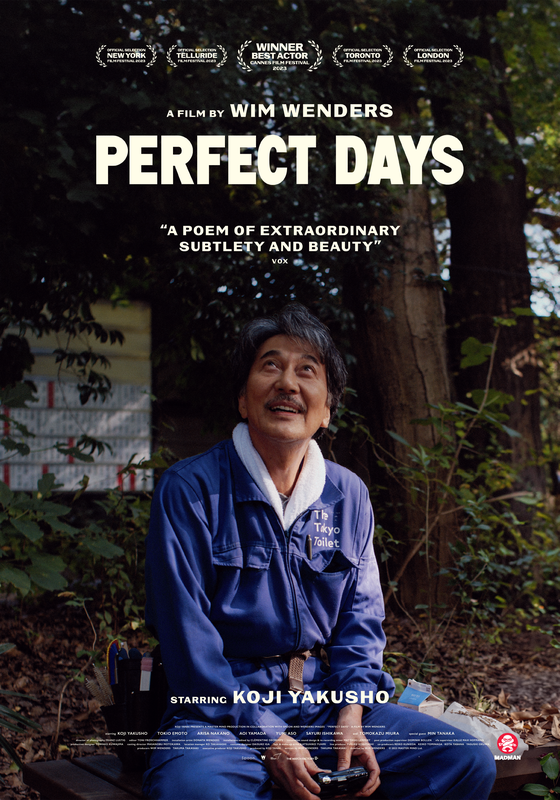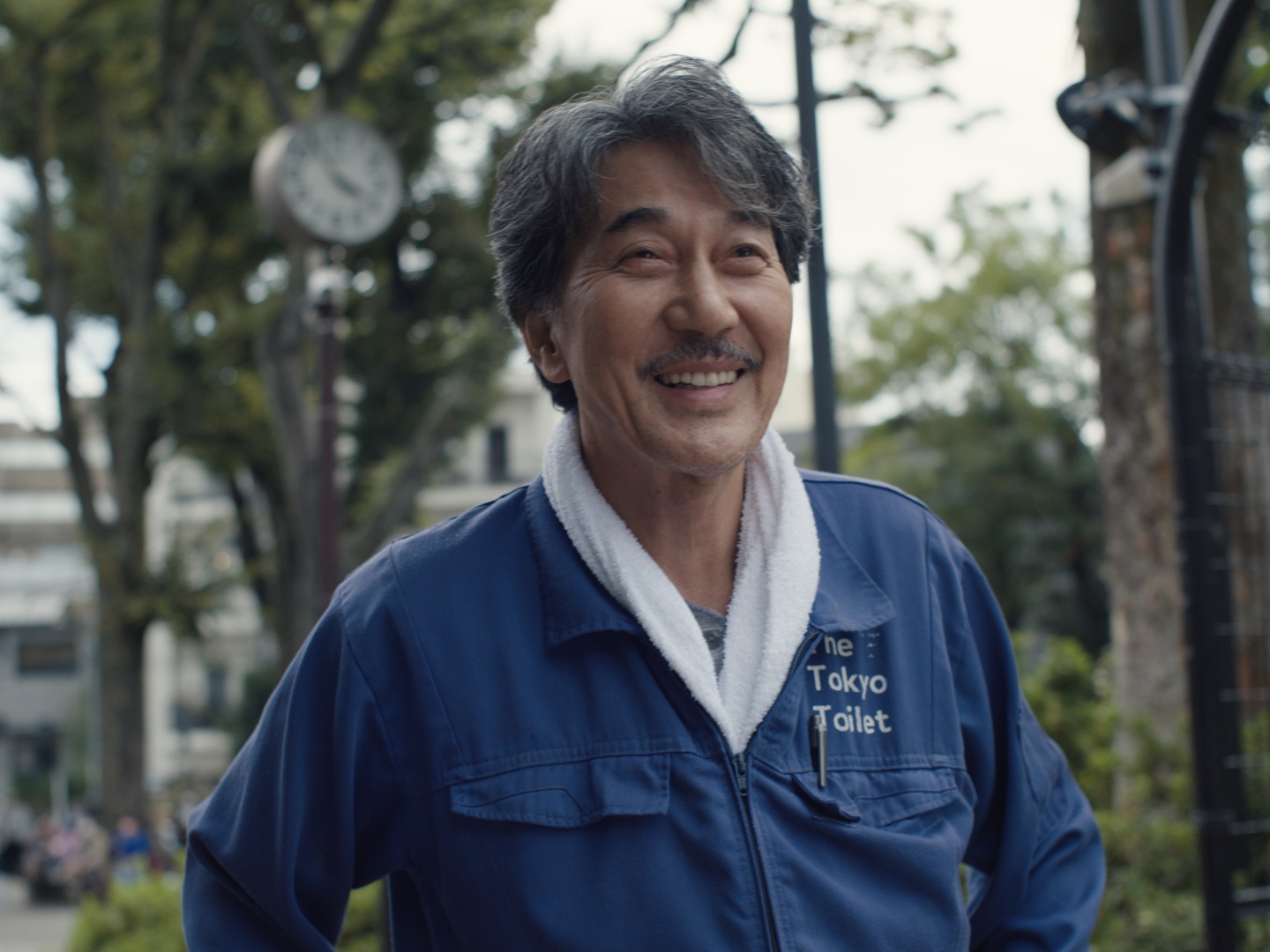Hirayama (Kôji Yakusho) wakes up in his home, rolls up his sleeping bag, neatly folds everything away, brushes his teeth, gets dressed in his uniform, waters a few houseplants, and picks up some essential items, including his phone, keys, and some change for a vending machine. Getting into his van, Hirayama selects a cassette tape as he drives to his first destination of the day. Hirayama is a cleaner working for Tokyo Toilets, a job which sees him visiting various public toilets and ensuring their cleanliness. It’s evident that everything Hirayama does is done with enthusiasm, passion, and positivity, and each task is completed with precision and perfection. After a long, hard day of work, Hirayama gets clean at the local showers and then enjoys an evening meal at a public venue to celebrate another day of hard work before returning home to do it again the next day. We get to witness Hirayama working in his job for multiple days; however, there’s more going on in this film than watching him clean toilets and mop floors. He interacts with many people throughout his daily routine and faces various challenges, all giving him many opportunities to admire the world and its beauty, making each day perfect.
Perfect Days is a dramatic film that tells a touching and uplifting story. Hirayama is highly likable. While he generally keeps to himself and rarely speaks, his passion for doing well, his enthusiasm for his job and his appreciation for nature, photography, and music are all infectious. While Hirayama’s job is to visit the same public places each day, it’s beautiful to see that no day is, in fact, ever the same, and sometimes it is just the subtle differences that make a tremendous impact and change to the day. As the film progresses, we also learn slightly more about Hirayama’s life, including relationships and past challenges surrounding family. Granted, not everything about Hirayama is fully explained, but there’s plenty here for viewers to feel connected to.
Performance-wise, I highly enjoyed Kôji Yakusho as Hirayama. The character is extremely likable, and what viewers experience feels natural and believable. Director Wim Wenders incorporates many creative choices here as viewers are invited into Hirayama’s life and world on a deeper level. The aspect ratio is 4:3 (squared format), which fits artistic style. When Hirayama takes a photo with his film camera, we instantly see how the image will turn out, or when he falls asleep and begins to dream, we are given glimpses of some of his thoughts, even if the pictures and imagery may still seem unclear. Ultimately, Wenders lets viewers follow Hirayama so that nothing is hidden, and his days at work, experience, and appreciation for beauty and life are all shared with us. By the end of the film, it’s impossible not to feel a strong connection with the character, and it’s most likely that viewers will be highly motivated and inspired by his life.
Overall, watching a man conduct his daily routine of cleaning public toilets doesn’t sound riveting to cinephiles, but thankfully, this film delivers so much more. It’s a story about finding joy and gladness in the most minor details of our daily lives, and it’s inspiring to follow the film’s lead, who does everything with passion and enthusiasm. Kôji Yakusho as Hirayama is a joy on-screen, and it’s impossible not to be connected to this character’s life, leaving viewers walking away from this film both inspired and uplifted. I enjoyed the many creative aspects, including the aspect ratio and all the finer details appearing throughout the movie. Perfect Days will have you feeling both grateful and uplifted.
8.9/10
6th November 2023
Written by Peter Walkden



WALKDEN ENTERTAINMENT
PODCASTS ARE AVAILABLE!




0 Comments